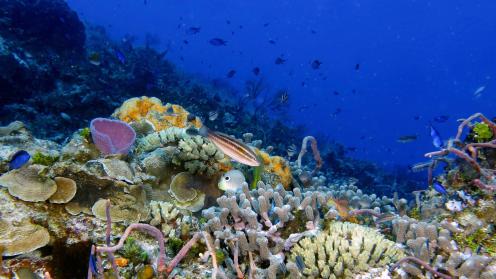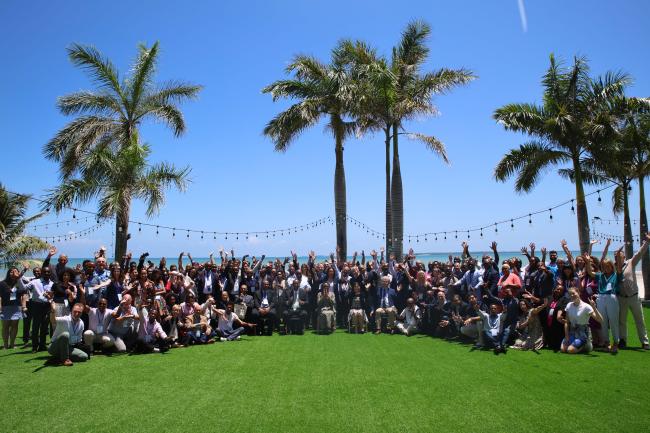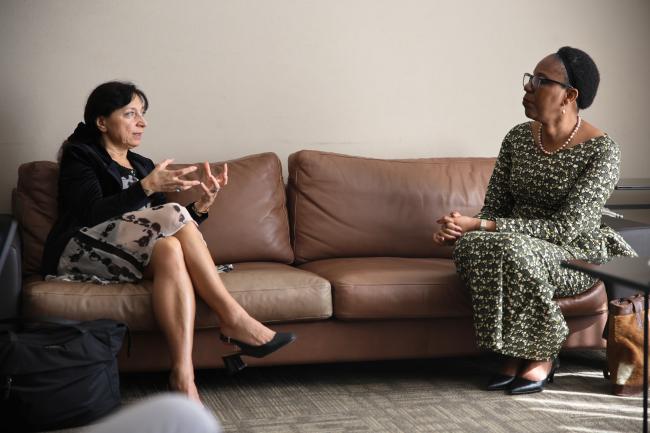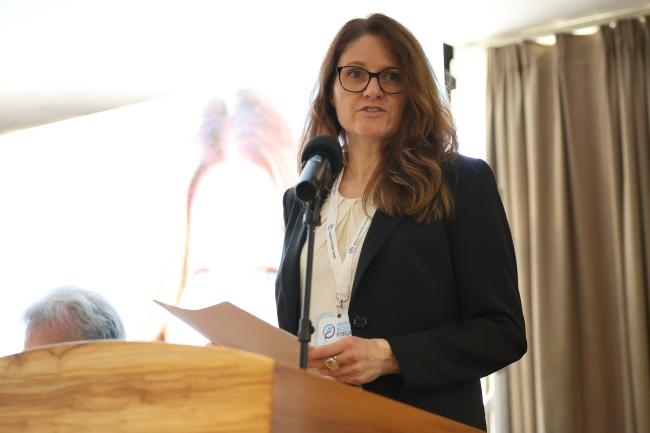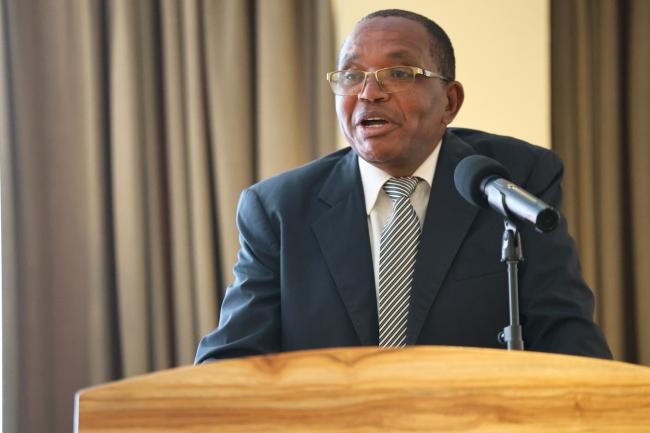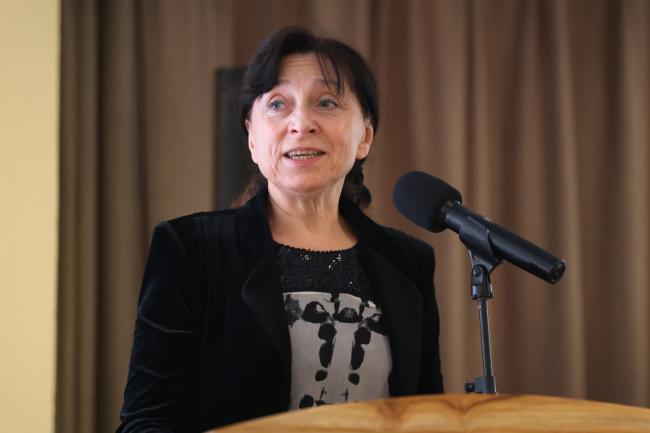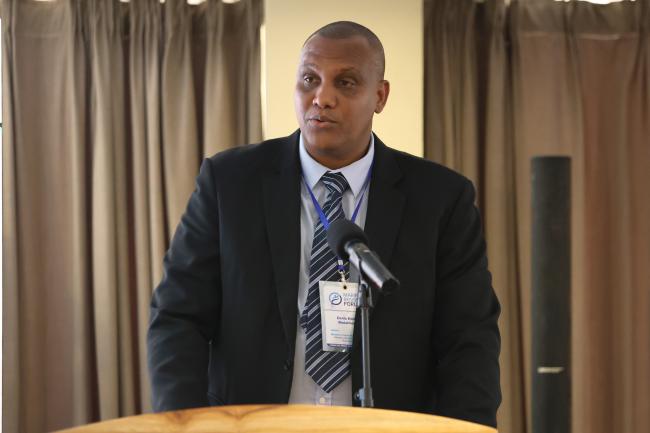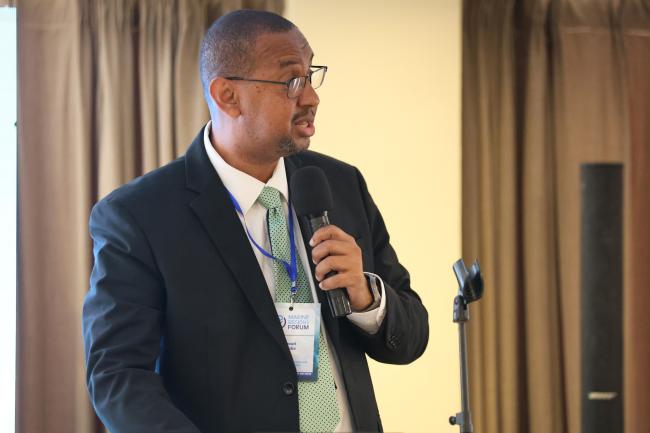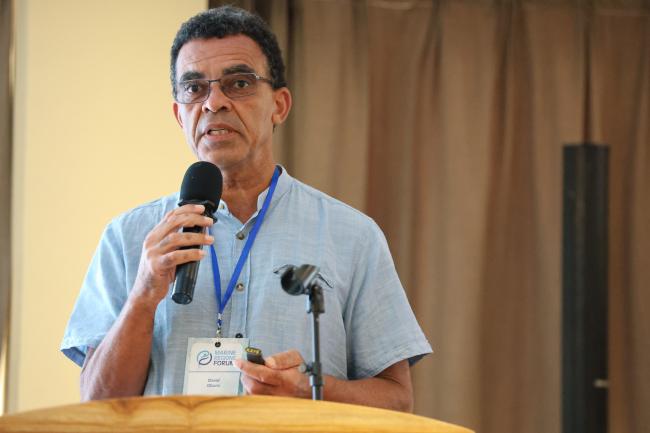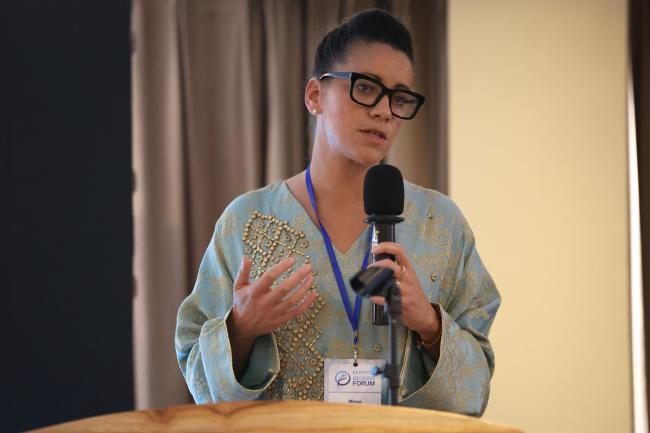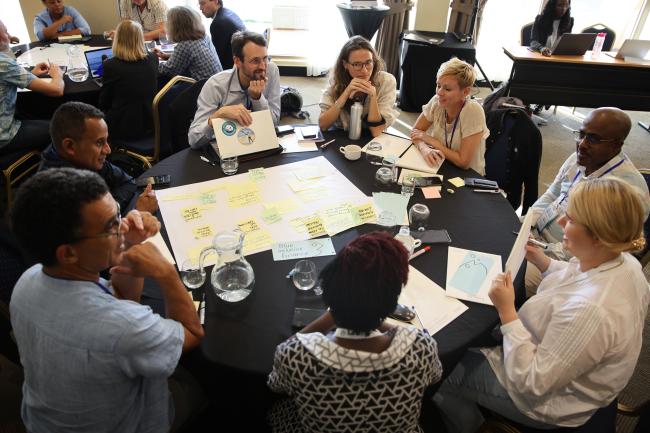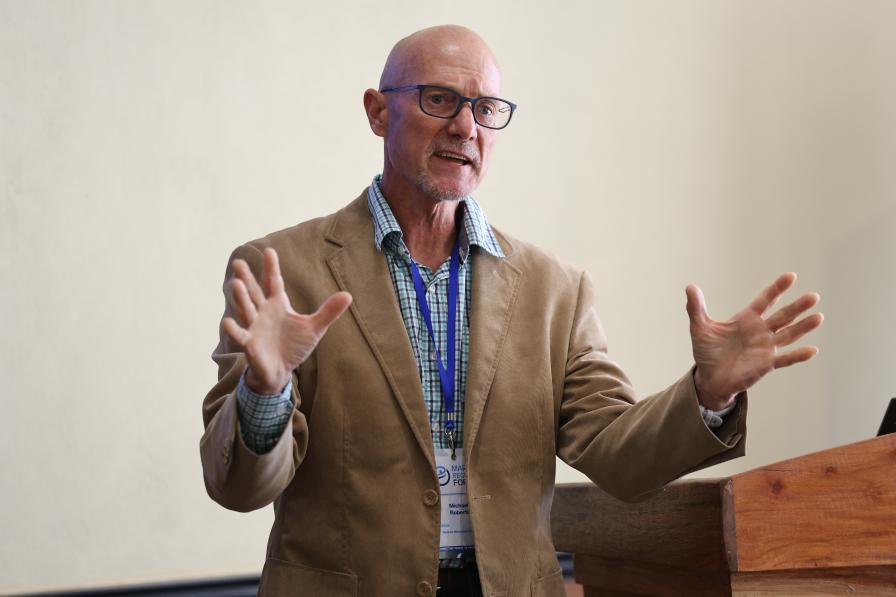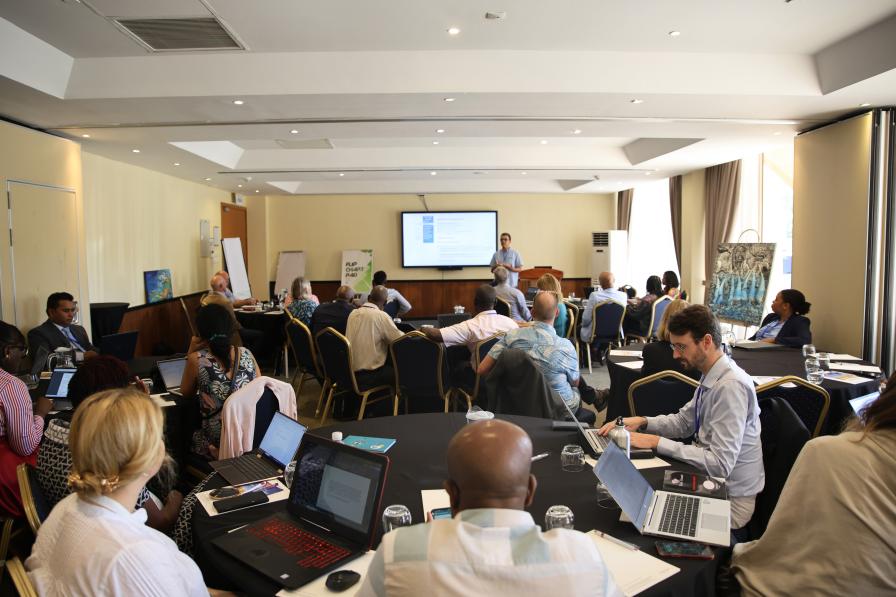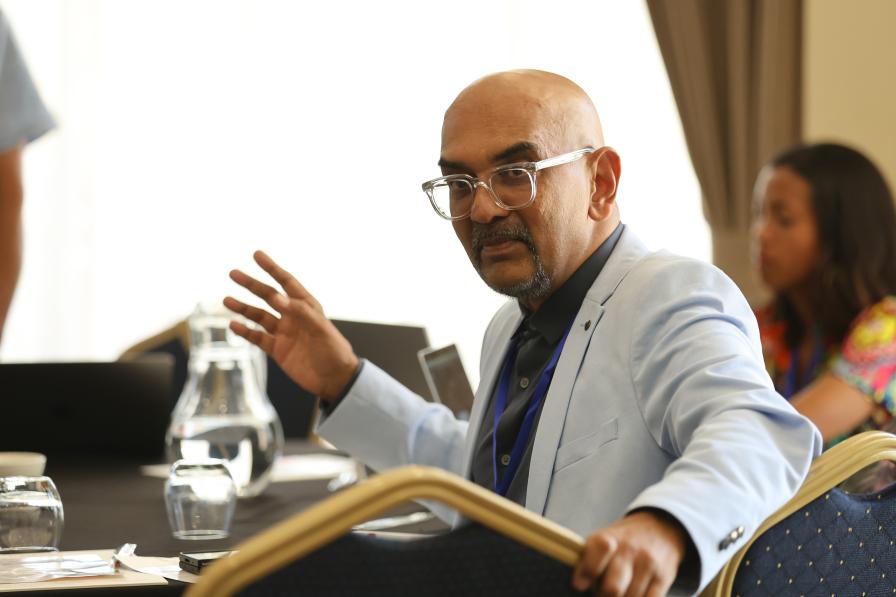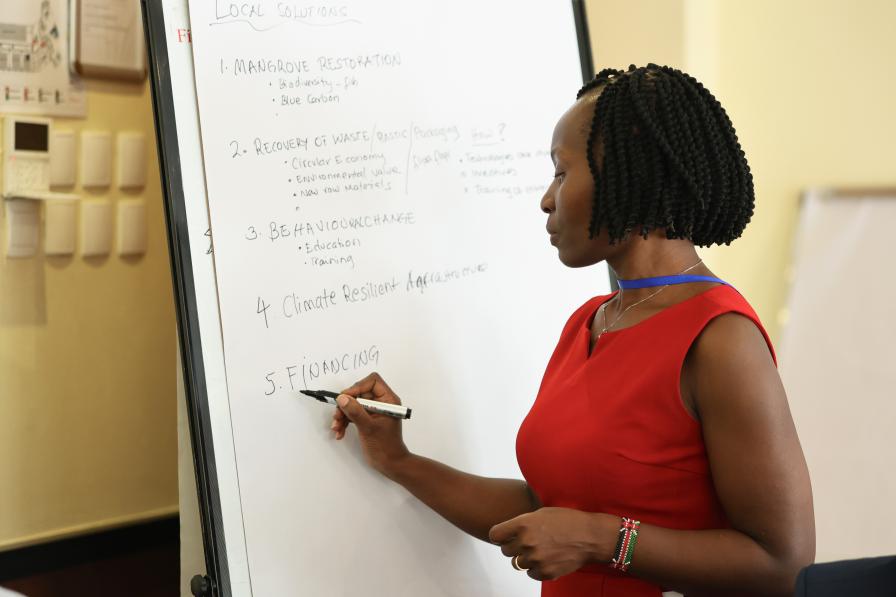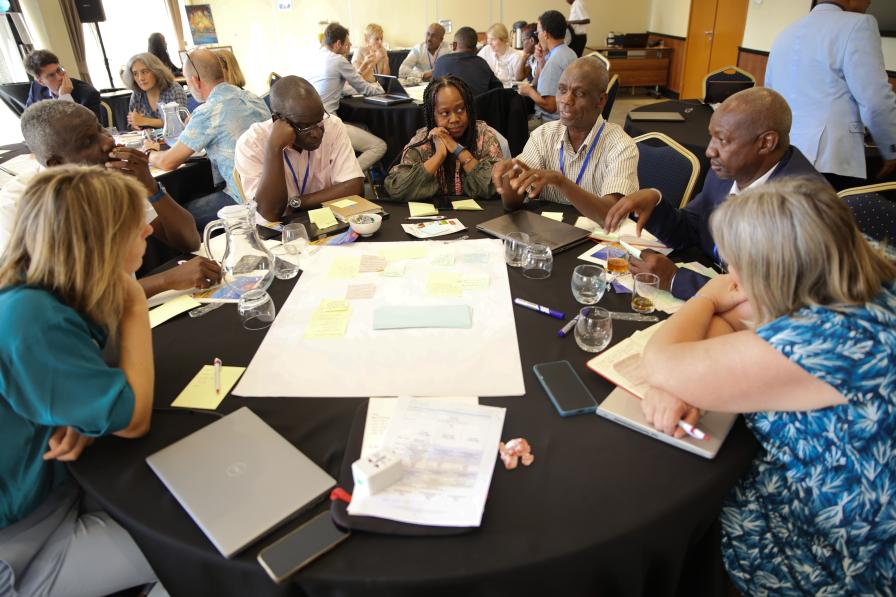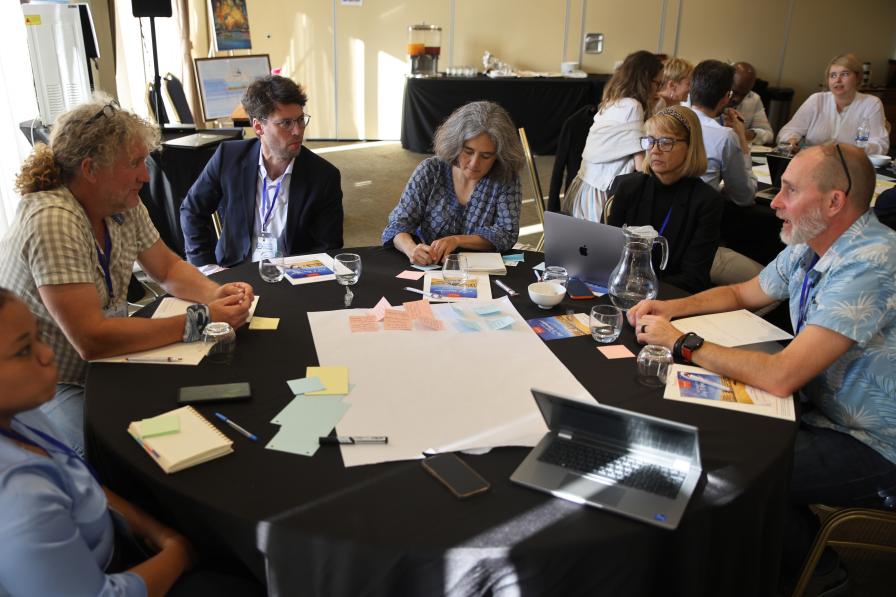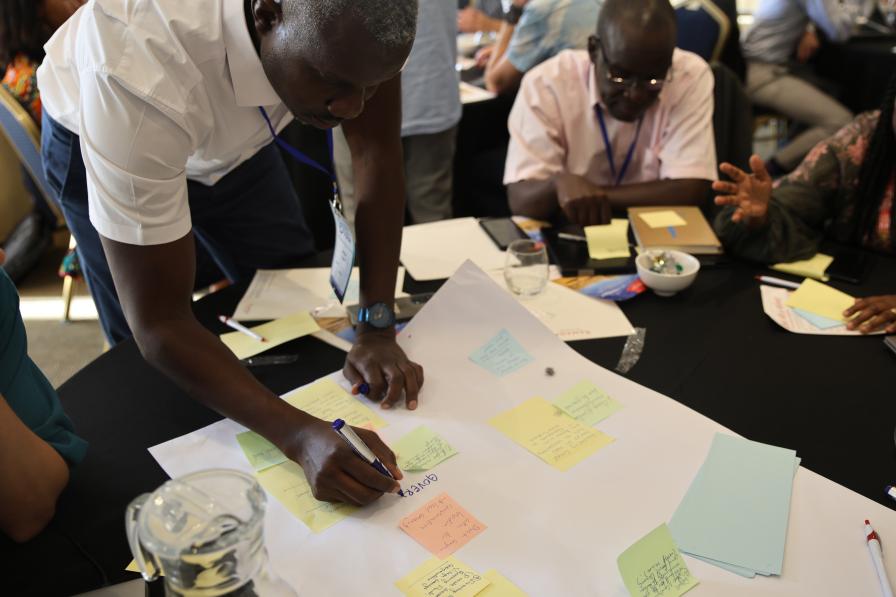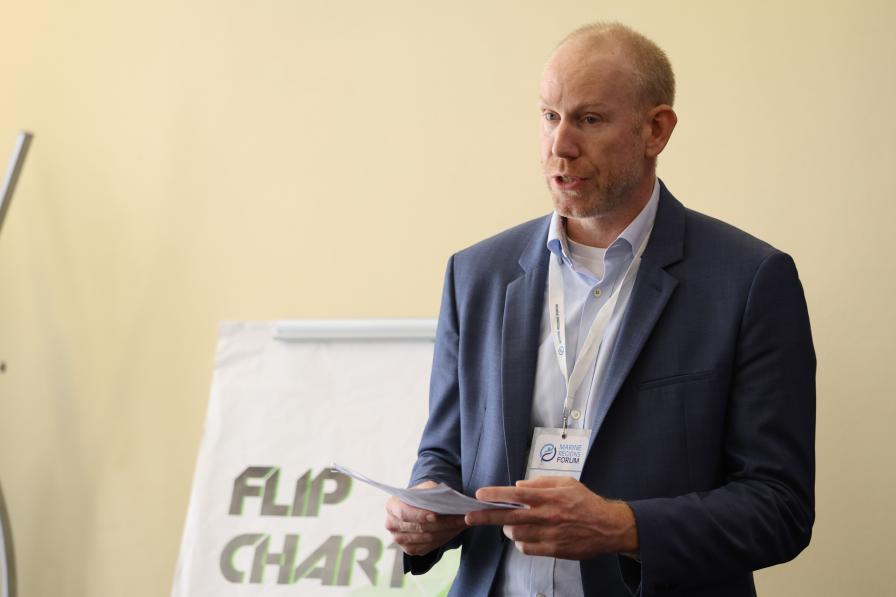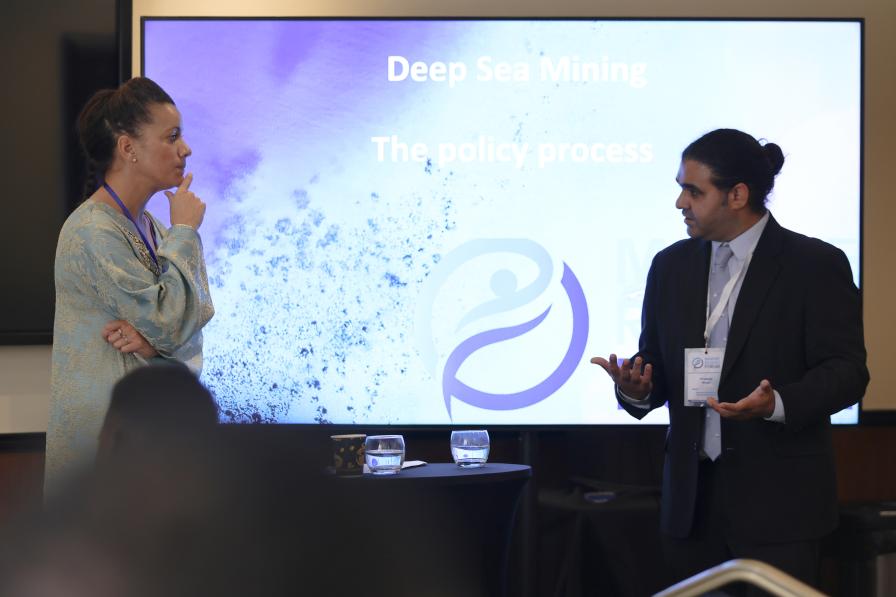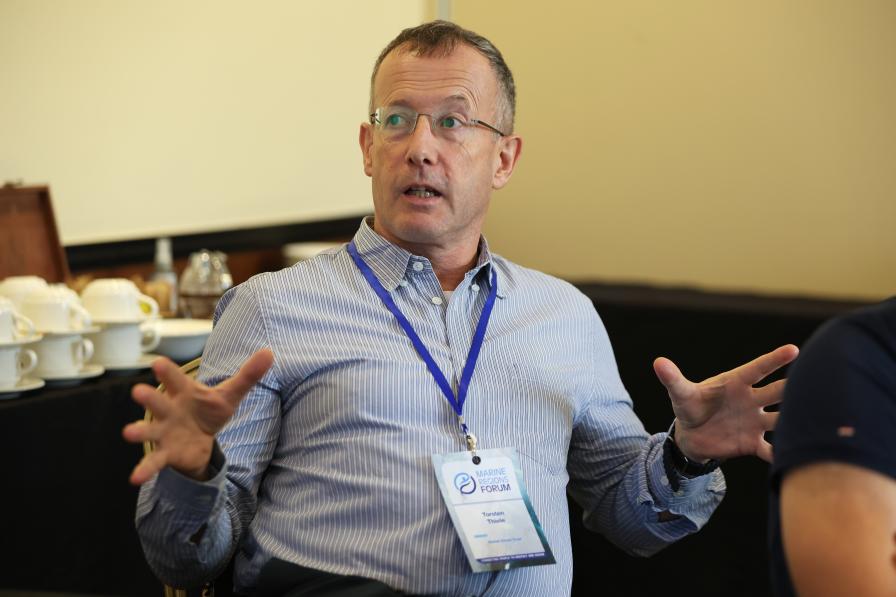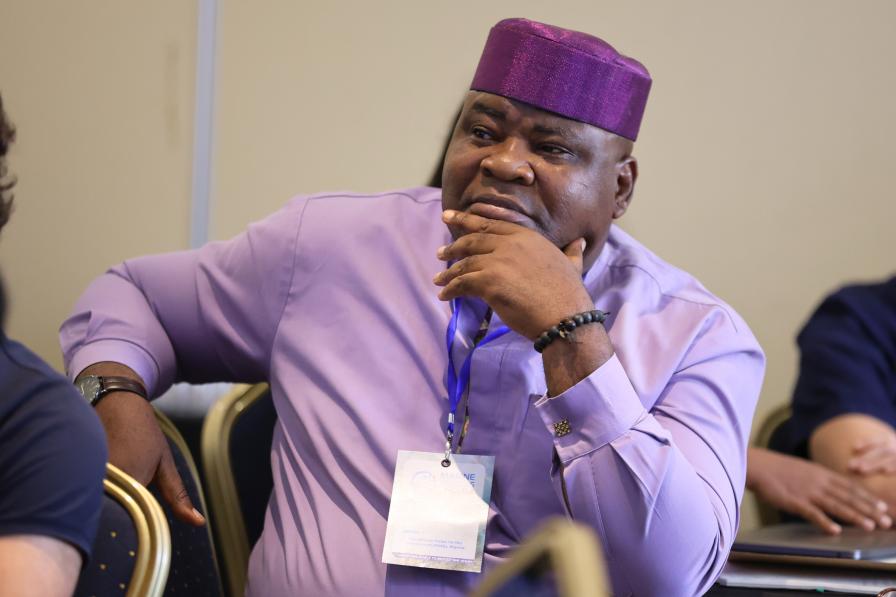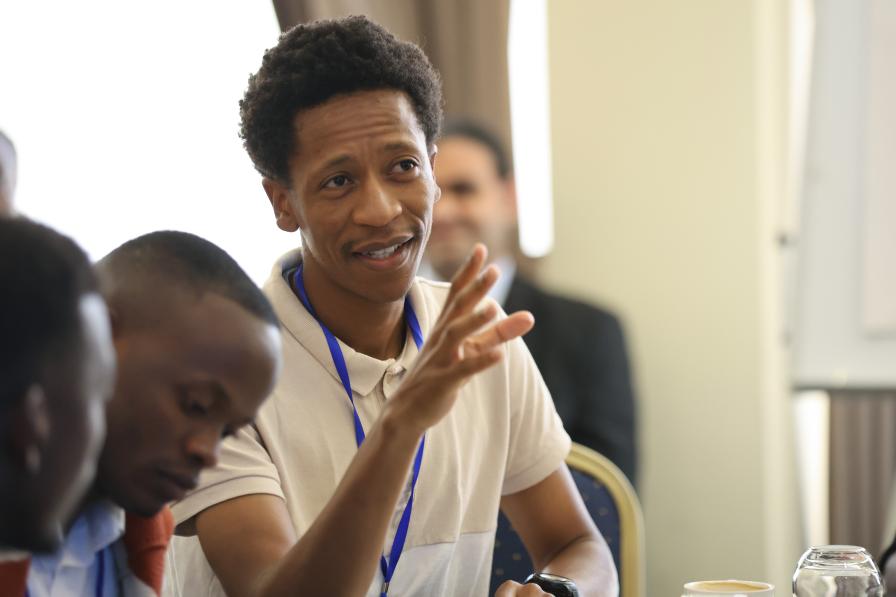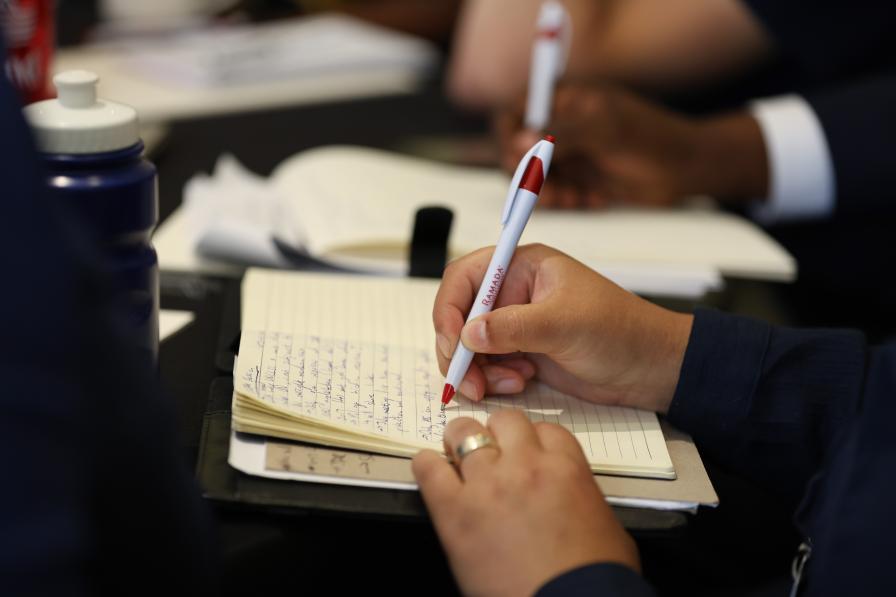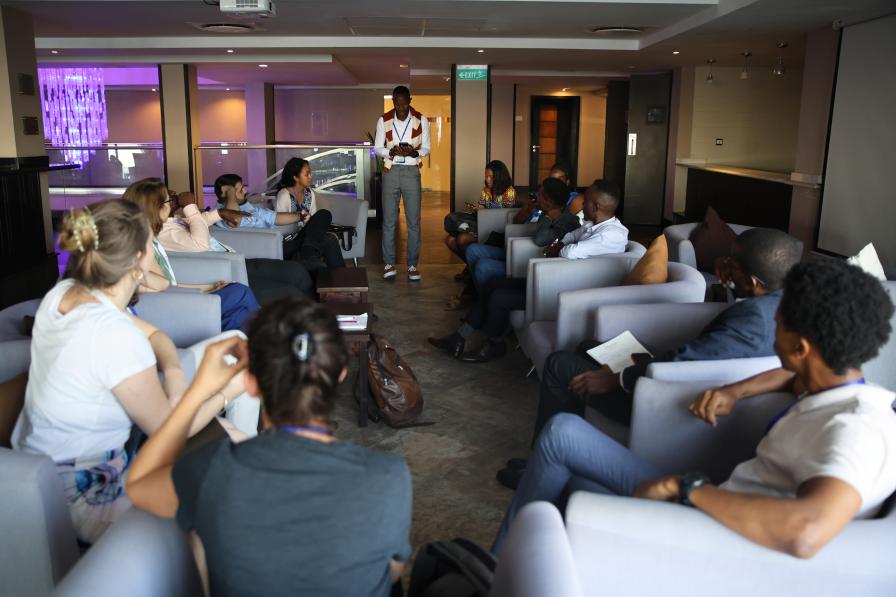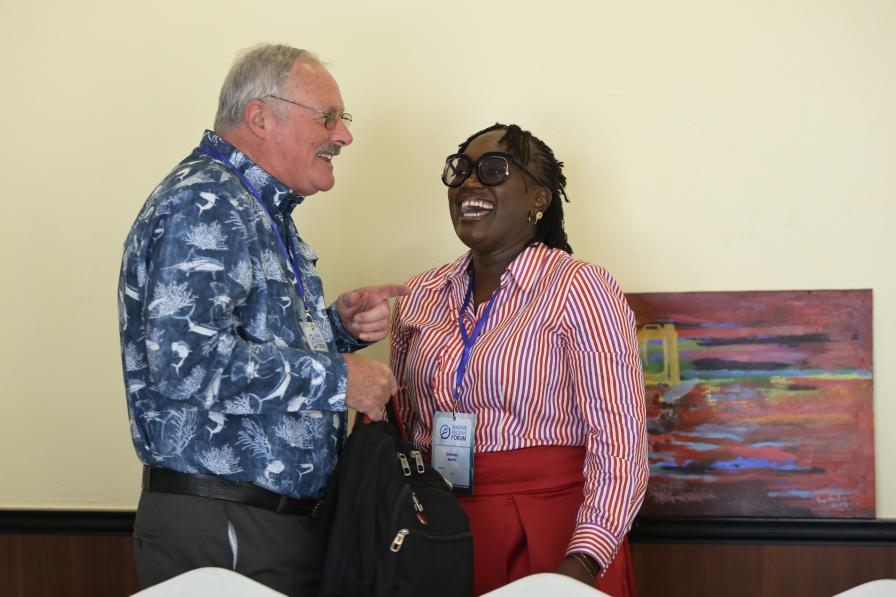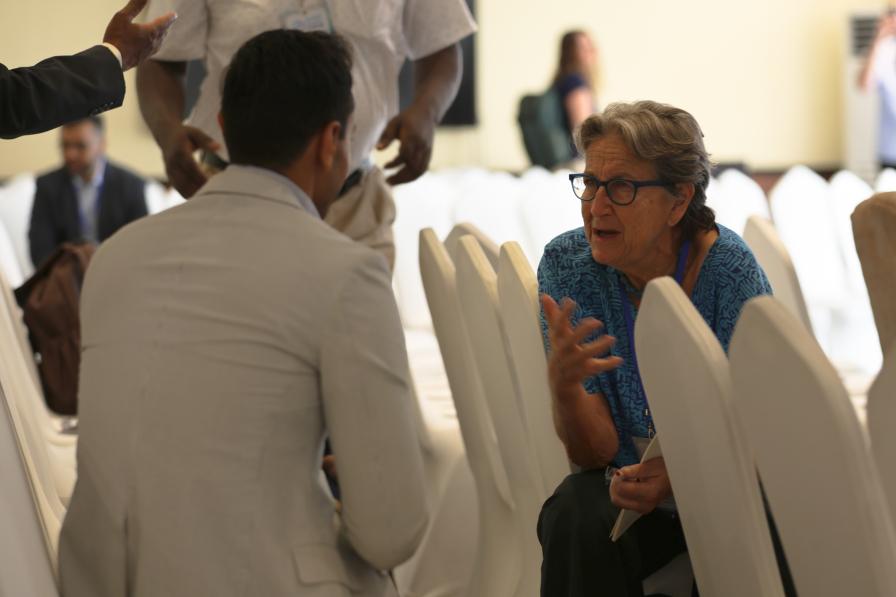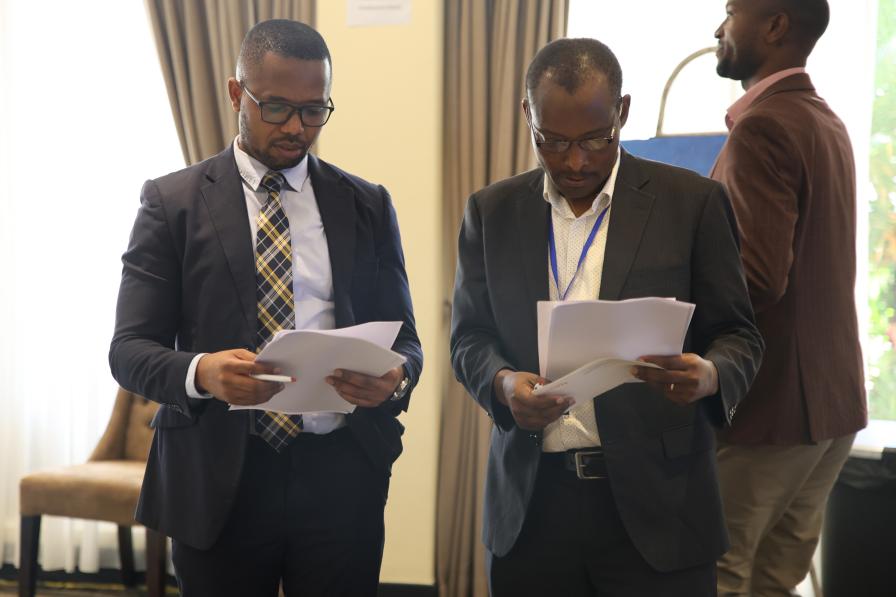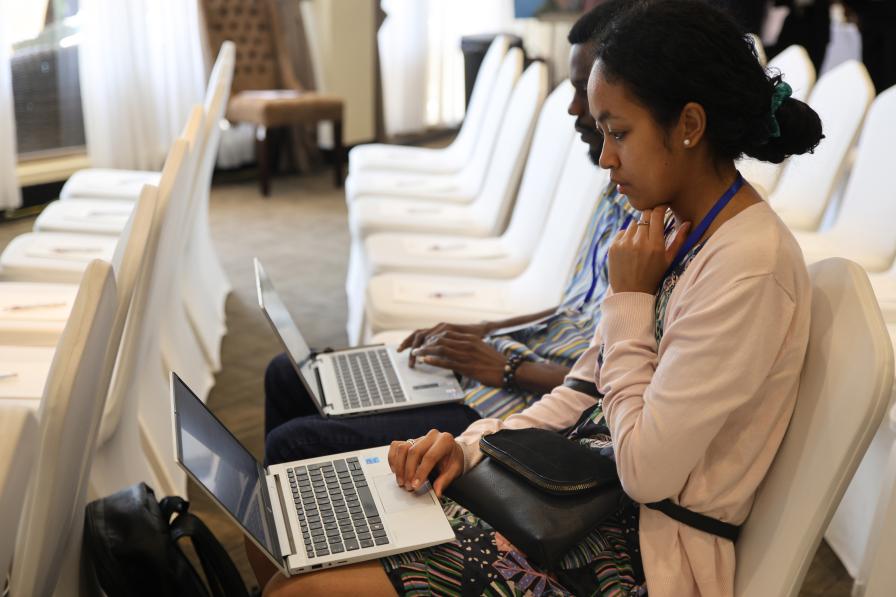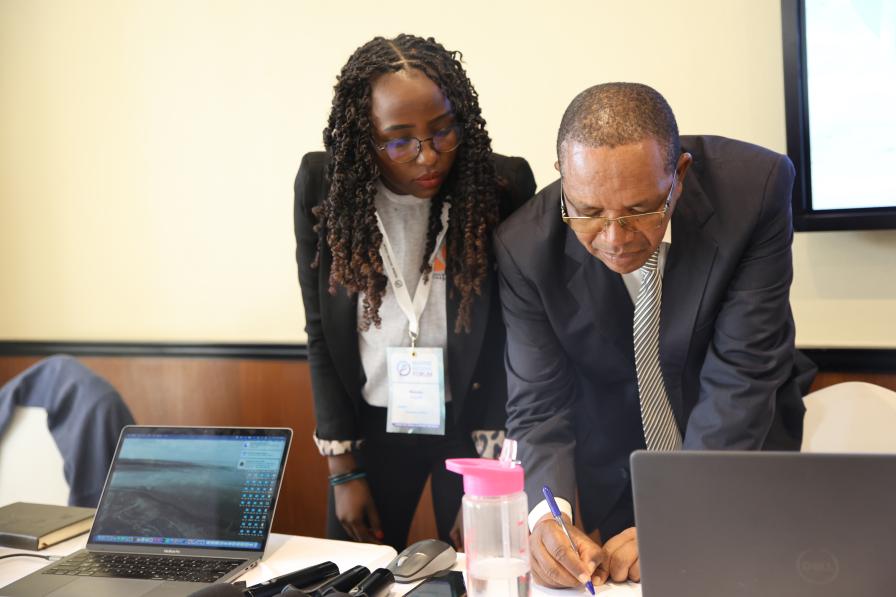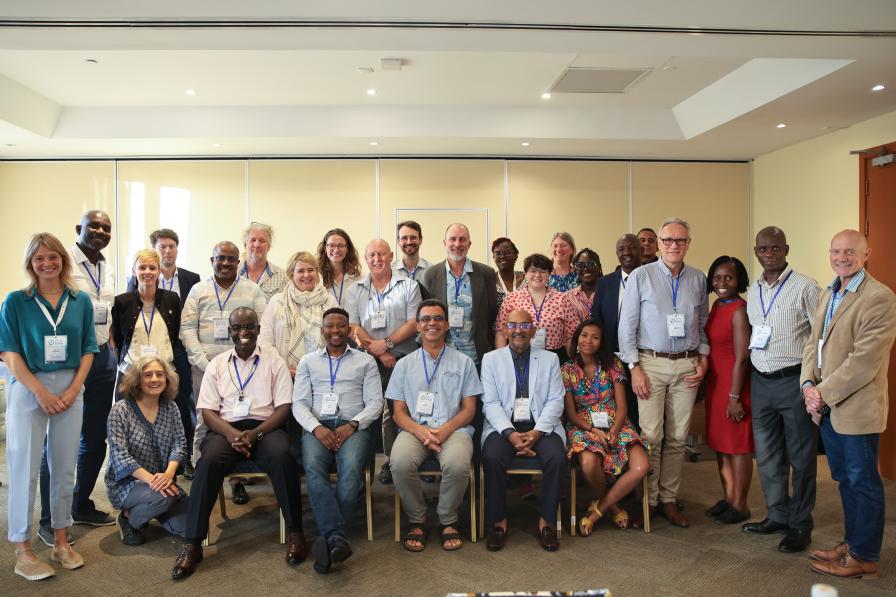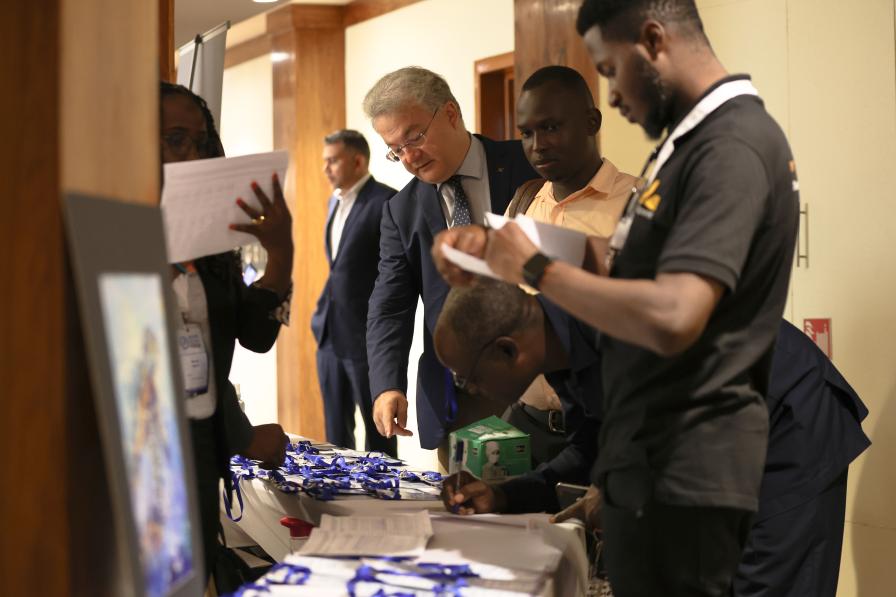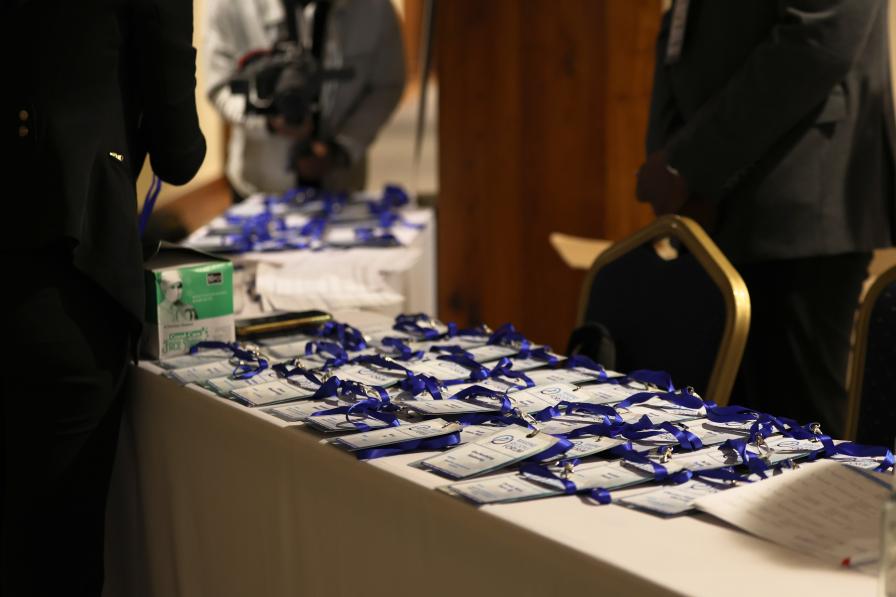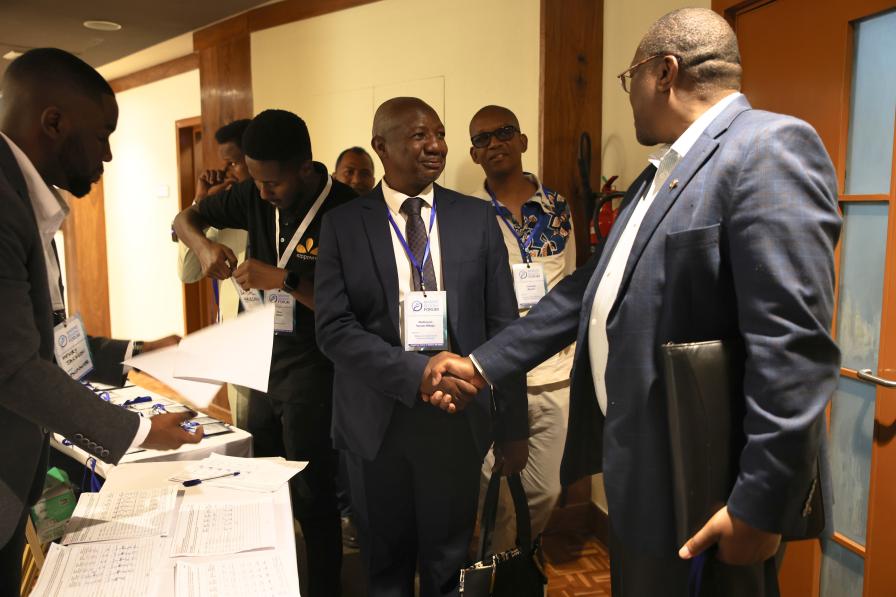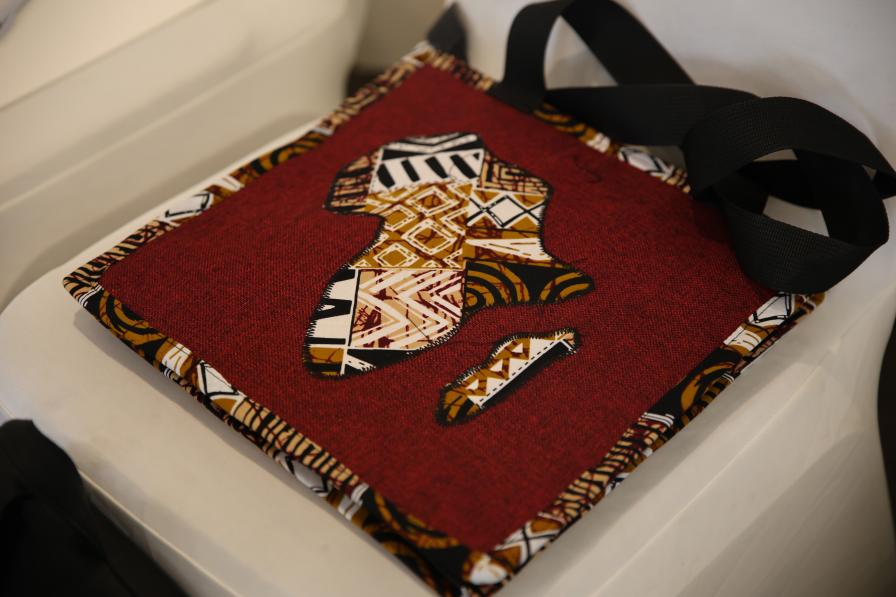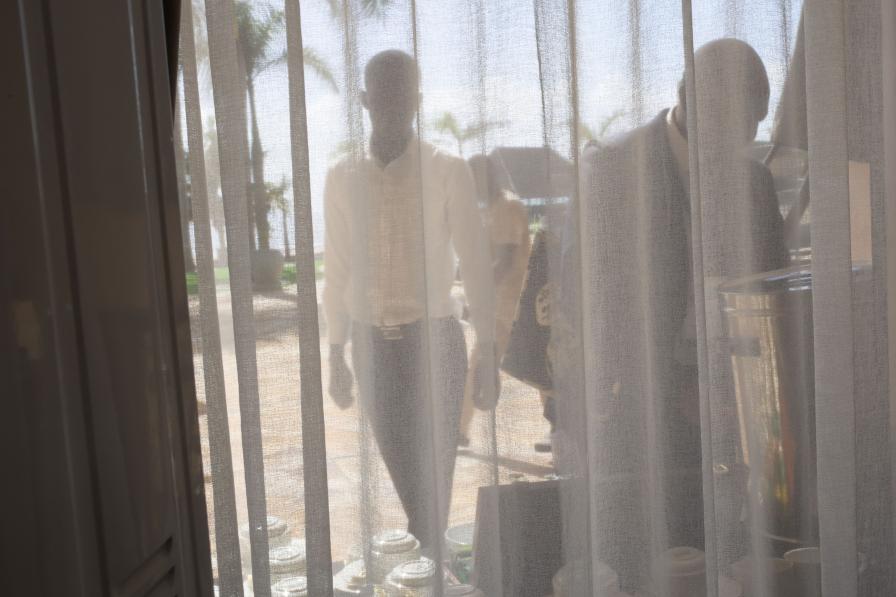The Marine Regions Forum 2023 kicked off for its first day discussions under the theme, Inclusivity. This theme set the tone for exploring diverse perspectives, promoting equality, and fostering a welcoming environment for all participants.
Following welcome remarks by the host countries Tanzania and Seychelles, participants engaged in a morning plenary on Building a Shared Understanding. In the afternoon they participated in four parallel sessions:
- Addressing the triple planetary crisis in local coastal contexts in East Africa.
- Circular economy for a more inclusive sustainable blue tourism in coastal and island destinations.
- Negotiations on deep-sea mining: Where do we stand?
- Inclusivity in regional ocean governance for collective implementation.
Opening Session
Barbara Neumann, Research Group Leader, Ocean Governance, Research Institute for Sustainability Helmholtz Centre Potsdam (RIFS), opened the plenary session, highlighting the inclusive and participatory nature of the platform.
Dixon Waruinge, Executive Secretary, Nairobi Convention Secretariat, underlined the unique character of the meeting in providing stakeholder engagement. Emilio Rossetti, Deputy Head, EU Delegation to Tanzania, highlighted positive achievements for international ocean governance, including the UN Convention on the Law of the Sea Agreement on the conservation and sustainable use of marine biological diversity of areas beyond national jurisdiction (BBNJ Agreement), and the World Trade Organization Agreement on Fisheries Subsidies.
Charlina Vladimirova Vitcheva, Director General, Marine Affairs and Fisheries, European Commission, said the ocean agenda is a high priority for the EU and a beacon for international cooperation. Denis Matatiken, Permanent Secretary of Environment, Ministry of Agriculture, Climate Change and Environment, Seychelles, urged participants to take broad perspectives to address common issues, such as overfishing, pollution, piracy, and climate change.
Aboud Jumbe, Permanent Secretary of Blue Economy and Fisheries, Zanzibar, said following the global shock of COVID-19, the meeting serves as a platform to achieve the aspirations of blue recovery. Mary Ngelela Maganga, Permanent Secretary of the Environment, Tanzania, called on participants to develop a governance strategy for the Western Indian Ocean (WIO) region.
Plenary on Building a Shared Understanding
Miranda Naiman, Founding Partner, Empower, moderated the plenary and introduced the four topical strands of the meeting: Tackling the triple planetary crisis; Fostering the sustainable blue economy; Implementing global goals at the regional level; and Regional ocean governance.
David Obura, Founding Director, Coastal Oceans Research and Development in the Indian Ocean (CORDIO) East Africa, elaborated on tackling the triple planetary crisis. He presented findings of a marine and coastal horizon scan, which revealed equatorial marine communities are becoming depauperate due to climate migration of species.
Aboud Jumbe, Permanent Secretary of Blue Economy and Fisheries, Zanzibar, spoke on the sustainable blue economy and highlighted, among others, ways to tackle cross-cutting themes, such as social inclusion and women's empowerment.
Noting that global problems require global solutions, Minna Epps, Head of IUCN’s Ocean Programme, discussed the importance of implementing global goals at regional levels. Dixon Waruinge, Coordinator, Nairobi Convention Secretariat, highlighted the Nairobi Convention’s approach, including tools such as an Integrated Coastal Zone Management (ICZM) protocol and a Marine Spatial Planning (MSP) strategy.
Tackling the Triple Planetary Crisis
Addressing the triple planetary crisis in local coastal context in East Africa: Fostering resilient communities and ecosystems
Mike Roberts, Nelson Mandela University, discussing the local realities of the climate emergency, highlighted projections of marine species and ecosystems loss. Jared Bosire, Nairobi Convention Secretariat, emphasized the importance of circular economy, highlighting the plastics evolution including innovative community projects that cash in on plastics.
David Obura, noted that WIO coastal communities need to understand the impacts of biodiversity loss including loss of income, quality of life, and future resilience. Discussing Locally Managed Marine Area Networks (LMMAs), Vatosoa Rakotondrazafy, IUCN Madagascar, mentioned the Great Blue Wall initiative, which aims to establish a connection of seascapes and supports LMMAs. Conversations continued in multiple roundtable discussions identifying local solutions and integrated pathways to address the crisis.
Implementing Global Goals at the Regional Level
Negotiations on deep-sea mining (DSM): Where do we stand?
Kerry Sink and Kirsty McQuaid, discussed aspects of habitats in the deep-sea, including known benefits and some unknown ecological risks. Discussing the ongoing negotiations on DSM in the International Seabed Authority (ISA), Minna Epps, IUCN, highlighted a proposal for a moratorium. Pradeep Singh, RIFS, explained the policy processes in the ISA and the different dynamics within the ISA Assembly and Council.
Discussing the issue of fairness in relation to DSM, Torsten Thiele, Global Ocean Trust, explored the different narratives of common heritage of mankind and ways of achieving fairness. Robert Kiptoo Kibiwot, Kenya International Boundaries Office, and Forbi Perise Eyond Nyosai, Sustainable Ocean Alliance, shared the perspective and stance of the African region and African youth in relation to DSM.
To receive free coverage of global environmental events delivered to your inbox, subscribe to the ENB Update newsletter.
All ENB photos are free to use with attribution. For the Marine Regions Forum 2023, please use: Photo by IISD/ENB | Anastasia Rodopoulou
